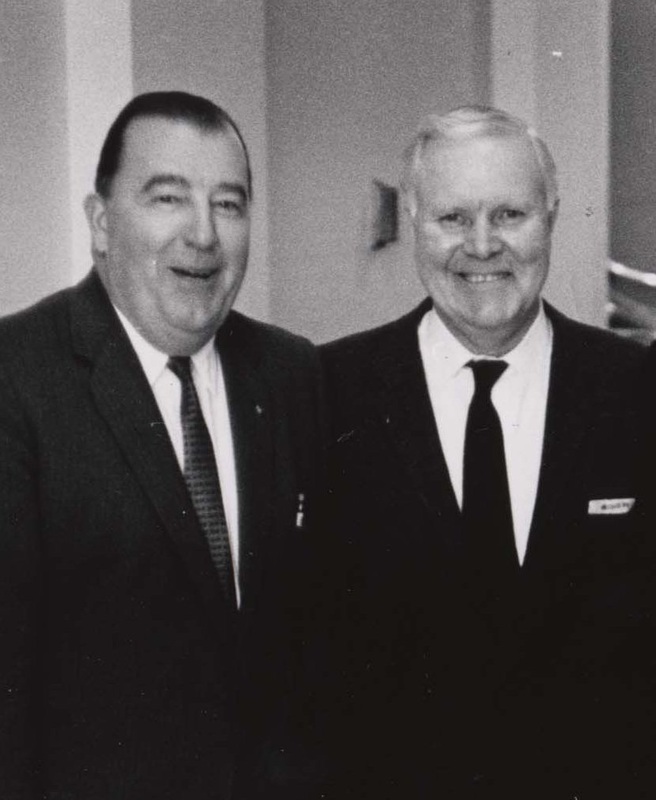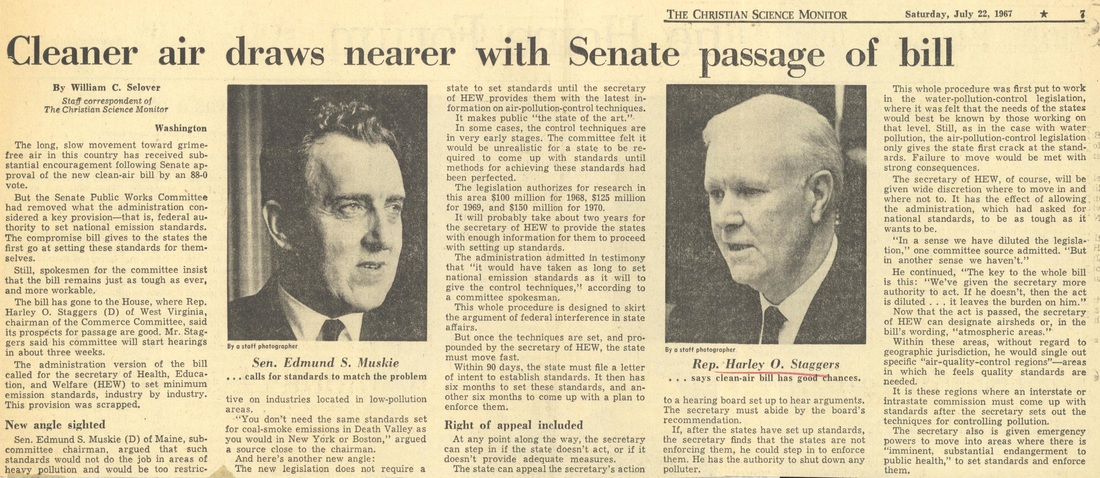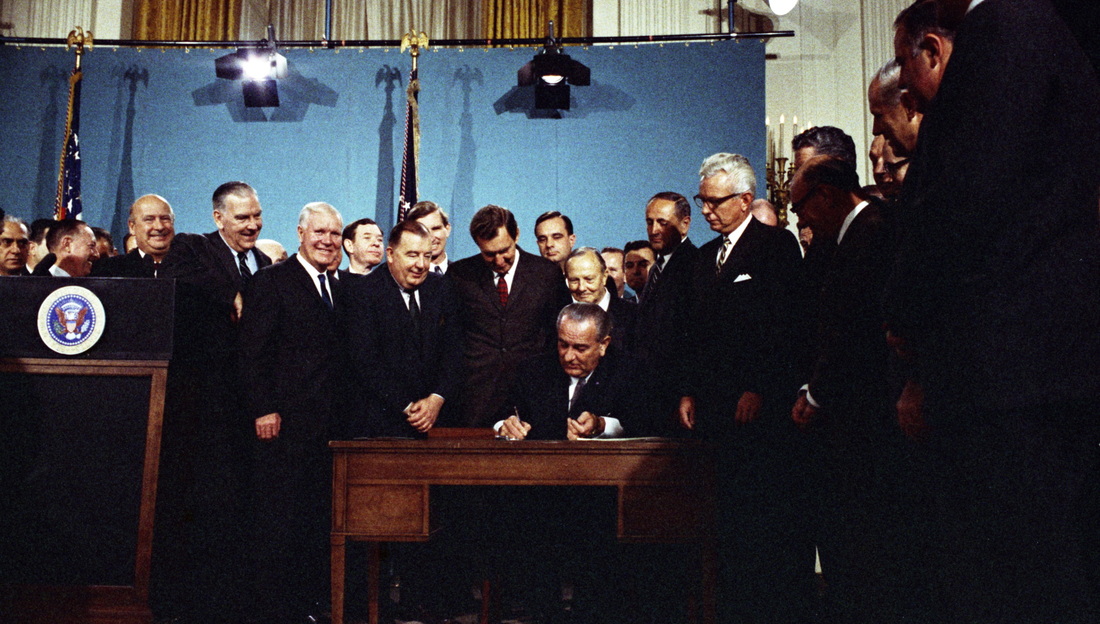The 1963 Clean Air Act called for increased research into emissions standards and placed some restrictions on industries, but the bill did not develop nation-wide standards or apply any control to other sources of emissions (such as automobiles). With a call for stronger federal control to diminish the growing pollution problem from President Lyndon Johnson, the 90th Congress went to work forging a stronger plan to enforce emissions standards. The Senate Public Works Committee, chaired by Senator Jennings Randolph drafted a bill which provided increased funding for research to find more cost-effective means of cleaning emissions. This was criticized by some as a favor to industries such as coal which dominated the economy of the chairman’s home state. Senator Randolph defended his provision, stating that he sought to provide the “potential for advancing the quality of the nation’s air without inordinately disturbing economic balances. Senator Edmund Muskie of Maine was also a major force behind the bill. During the committee debates, Senator Muskie forged a compromise over the question of nationwide federal standards. In working to obtain support for the bill from senators who opposed federal regulation, Senator Muskie advocated for states being given the right to develop their own standards, but providing the Secretary of Housing, Education, and Welfare the power to intervene and enforce standards in states which failed to do so adequately. The bill was passed by the Senate by a vote of 88 to 12 on July 18, 1967. Upon arrival in the House of Representatives, the bill was assigned to the Interstate and Foreign Commerce Committee, which oversaw the nation’s energy and transportation regulations. The committee, led by Chairman Harley O. Staggers, Sr., had passed the Motor Vehicle Safety Act in the previous year, providing a precedent for federal regulation in the automobile manufacturing industry. While debating the Air Quality Act, the committee struck Senator Randolph’s added funding for industrial research, but incorporated a focus for research on fuel emissions (previous bills had focused specifically on sulfur emissions). This expanded coverage enabled the act to begin studying the effects of vehicle as well as industrial emissions. The House of Representatives passed the Air Quality Act by a vote of 362 to 69 on November 2, 1967. After the Senate passed the amended bill, it was signed into law by President Lyndon Johnson on November 21, 1967. In his remarks while signing the bill into law, President Johnson thanked Senators Muskie and Randolph and Congressman Staggers, Sr., but called for even greater attention to the problem of air pollution. Though the Air Quality Act of 1967 strengthened federal response to dangerous emissions and pollutants, Congress again strengthened federal control over air pollution in 1970 with the Clean Air Act, approving federal nationwide regulations and emissions standards. Subsequent laws were passed in 1977 and 1990, expanding the control of harmful pollutants and increasing federal regulations to help restore and improve the nation’s air quality. President Johnson stated “the Air Quality Act will never end pollution. It is a law--and not a magic wand to wave that will cleanse our skies. It is a law whose ultimate power and final effectiveness really rests out there with the people of this land--on our seeing the damnation that awaits us if the people do not act responsibly to avoid it and to curb it.”
Comments are closed.
|
Welcome to the Byrd Center Blog! We share content here including research from our archival collections, articles from our director, and information on upcoming events.
Categories
All
Archives
July 2023
|
Our Mission: |
The Byrd Center advances representative democracy by promoting a better understanding of the United States Congress and the Constitution through programs and research that engage citizens.
|
Copyright © Robert C. Byrd Center for Congressional History and Education
|




 RSS Feed
RSS Feed
